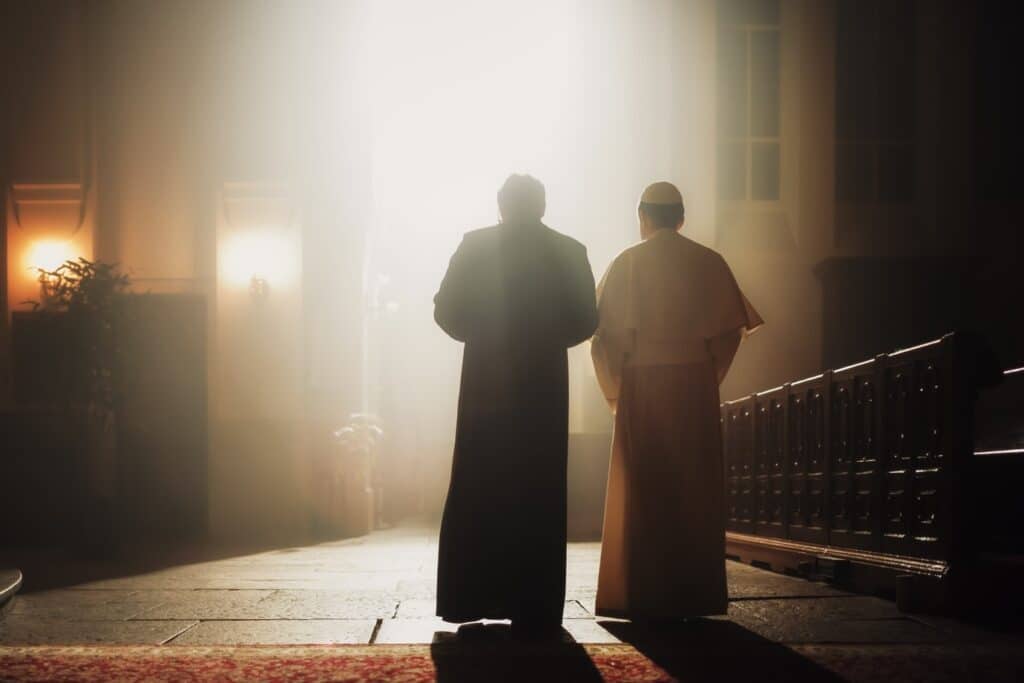As religious ideology has historically been woven into many political and educational institutions around the world, these entities have become increasingly forced to reckon with the progression of women’s rights amidst outdated statutes.
In Ireland, a country whose 86-year-old constitution was written through a conservative Catholic lens, progressive laws have been steadily amended to reflect the reality of modern society. In 1973, the country removed a declaration stating “the special position of the Holy Catholic Apostolic and Roman Church”. Then, in 2015, Ireland became the first nation to legalise gay marriage, and in 2018, abortion was legalised and “blasphemy” was removed as a crime.
Now, the Irish government has this week proposed plans to remove sexist language from the nation’s constitution, which declares women shouldn’t be expected “to engage in labour to the neglect of their duties in the home”, and which describes the “common good” as dependent on defending women’s “life within the home”.
A national referendum to vote on these amendments is set for March 8– International Women’s Day– where the first amendment would remove gendered language and commit to value the work of all family carers.
The second amendment would broaden the definition of the family to include all households with “durable relationships” as the current clause states the constitution commits the state “to guard with special care the institution of Marriage, on which the Family is founded, and to protect it against attack”.
The new wording of “durable relationships” will include the roughly third of couples in Ireland with children born out of wedlock.
Whether or not these amendments take place will depend on the referendum’s outcome. Meanwhile, just one in five people in Ireland believe women are treated equally in the home, according to a poll conducted last year.
Catholicism in Australia
According to this year’s Women, Peace and Security (WPS) Index, Ireland ranks as the 13th best country in the world for inclusion, justice and security for its female population– a ranking that comes in just behind Australia, which is 11th best.
While Australia does rank above Ireland in this context, our institutions have had their fair share of religious reckoning when it comes to women’s rights.
Just this week, the head of Catholic Education Tasmania, Gerard Gaskin has come under fire for taking issue with mandatory consent education as outlined in the national curriculum, saying it includes “highly sensitive, amoral and potentially harmful information”.
In an article on the Archdiocese of Hobart’s website, Gaskin wrote: “In Catholic morality, consent is necessary, but not sufficient, to make the sexual act right or wrong. It is the long-held teaching of Christ that sexual activity is only legitimately expressed within the loving relationship between husband and wife.”
The updated curriculum would incorporate consent education, including an understanding of gender stereotypes, coercion and power imbalances– a welcome move by many women’s rights activists.
In response to Gaskin’s conservative Catholic views, Australia’s well-known spokesperson for consent and founder of Teach Us Consent, Chanel Contos said consent education shouldn’t be made political or religious.
“Sexual relationships can and do occur outside of marriage,” Contos told The Greek Herald. “Abstinence is a choice, sexual assault is not.”
She noted that “marital rape is also illegal in Australia”, so consent education would benefit even those inside a marital contract.
“Whilst I do not personally agree with teaching abstinence, consent education can always be taught in conjunction with religious values.”
Last year, the Plenary Council of Australia addressed the experience of women in the Catholic Church by amending rules to the equal dignity of women and men in its guiding document.
Plenary Council president Archbishop Timothy Costelloe SDB addressed the assembly, saying, “There is a long way for the Church to go in the understanding of the proper role of women in the life of the Church.”
“The way we move forward to properly understand God’s plan in relation to women is important,” he said.
Women’s role in the Catholic church
Only just this year did the Catholic church– the first time in the institution’s 2000-year history– first allow women to vote in the Assembly of the Synod of Bishops at Vatican City.
And recently, despite strongly opposing the idea in the past, Pope Francis created two commissions to study the possibility of female diaconate. This would mean women would be allowed to preach at mass and perform marriages and baptism, however, they would not be allowed to celebrate Eucharist or hear confessions.
Strong opponents to female diaconate argue allowing women to participate this way in the church would eventually lead to permission for women to be ordained as priests.
Despite this, nuns outnumber brothers almost 10 to 1 globally. And women make up the majority of members in the Catholic Church at 60 per cent.


